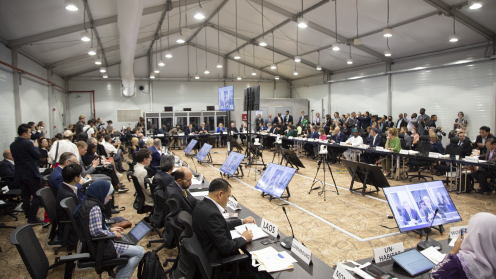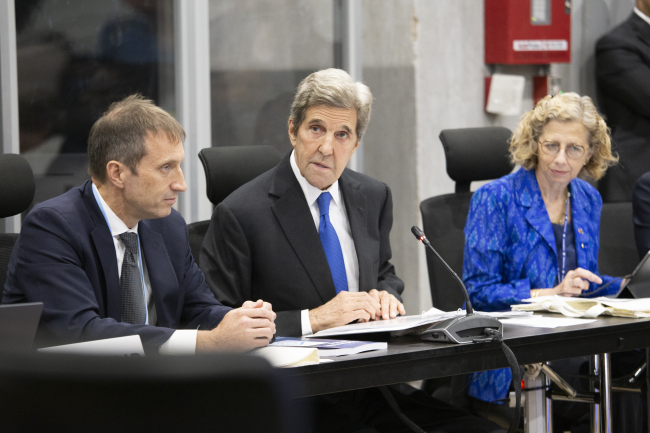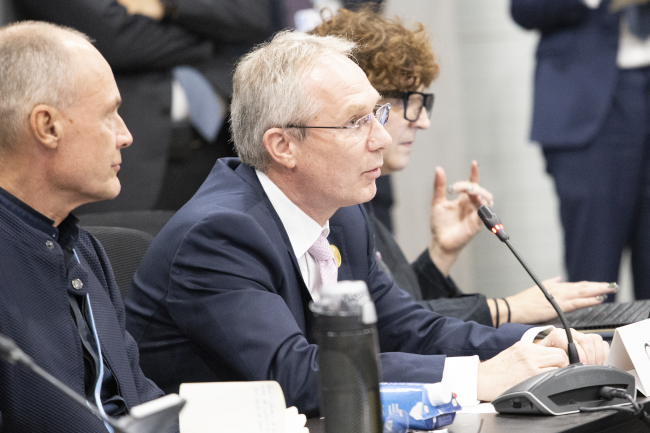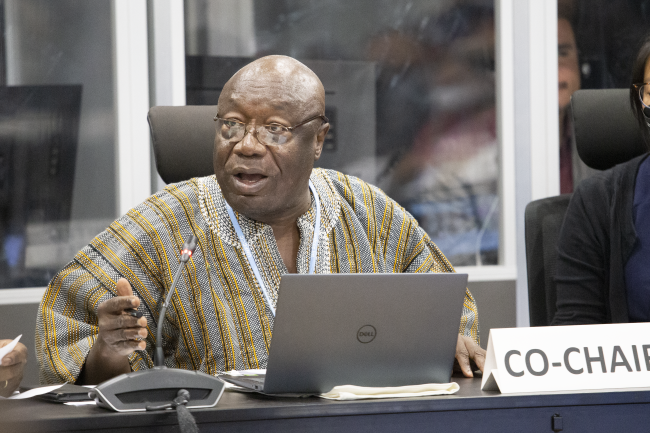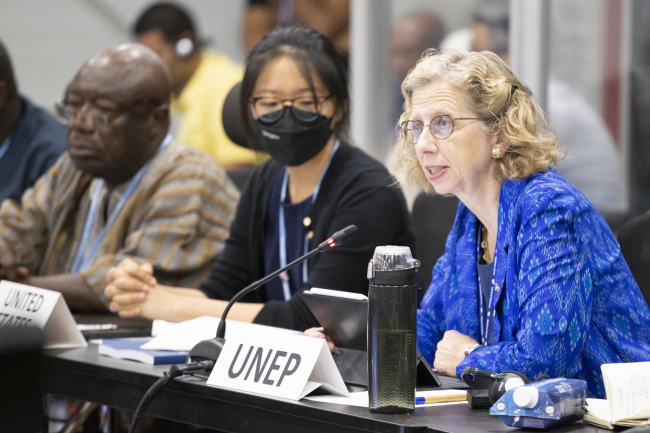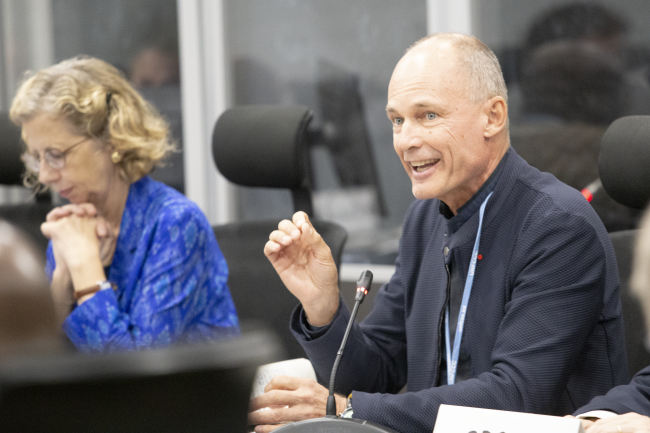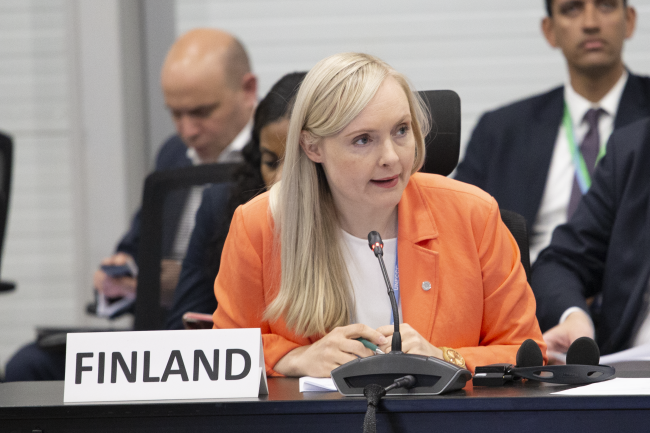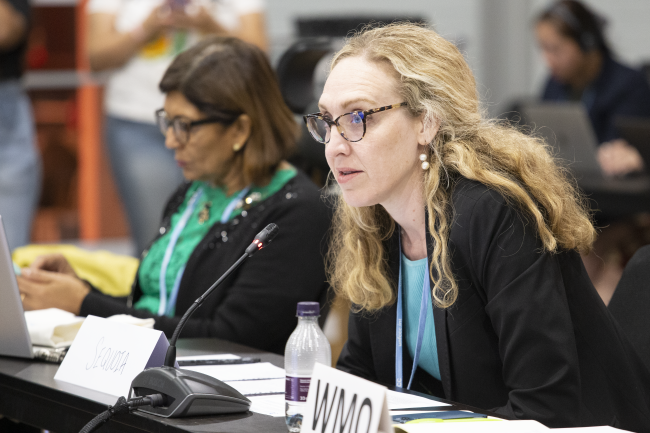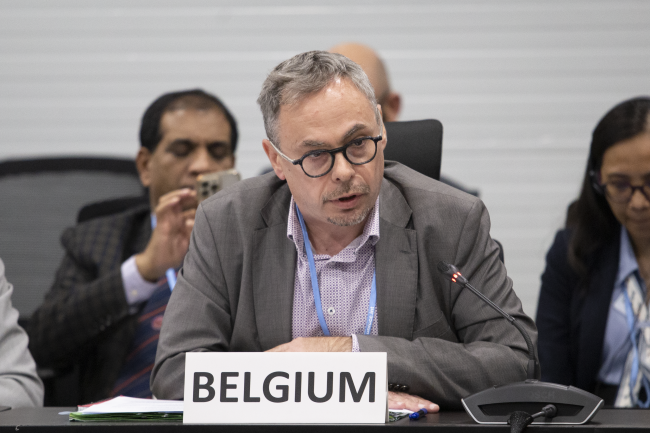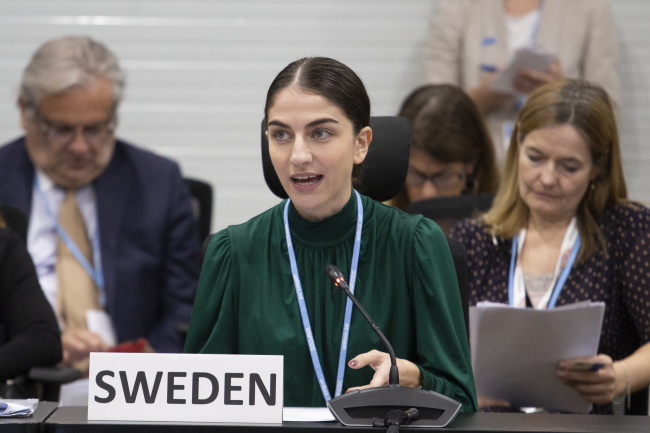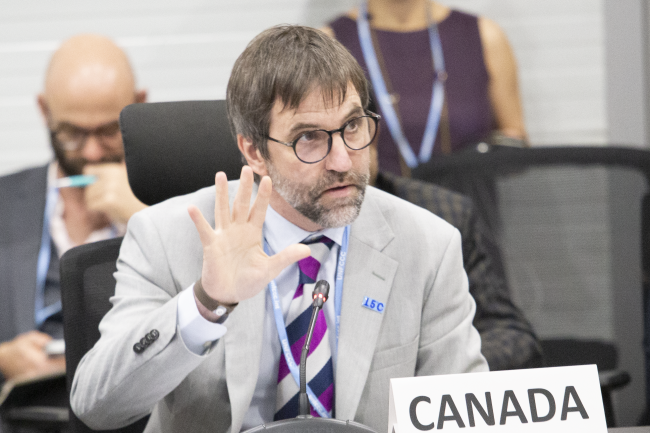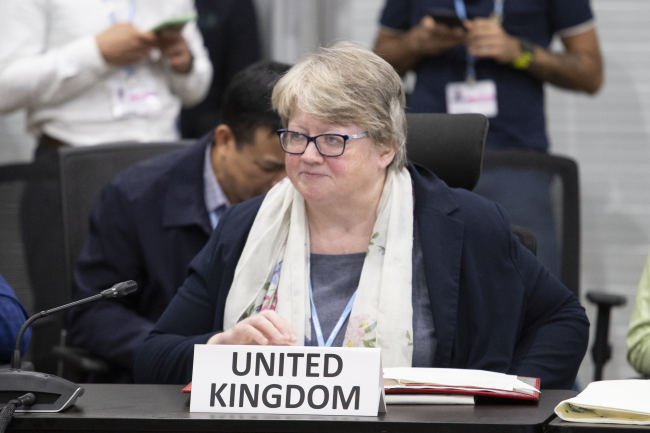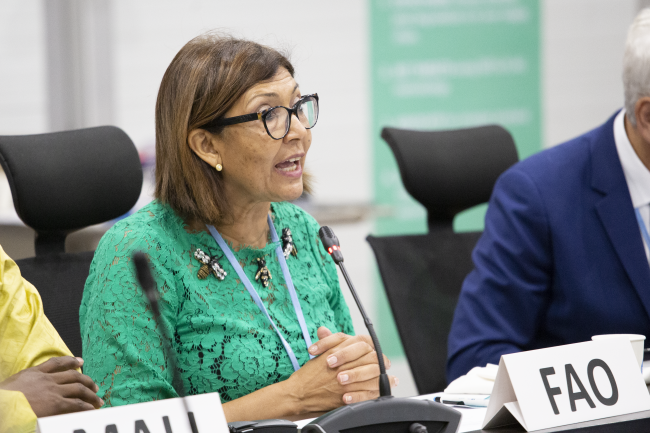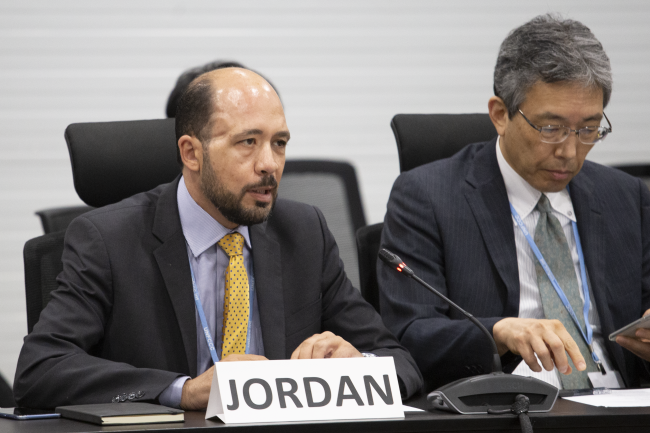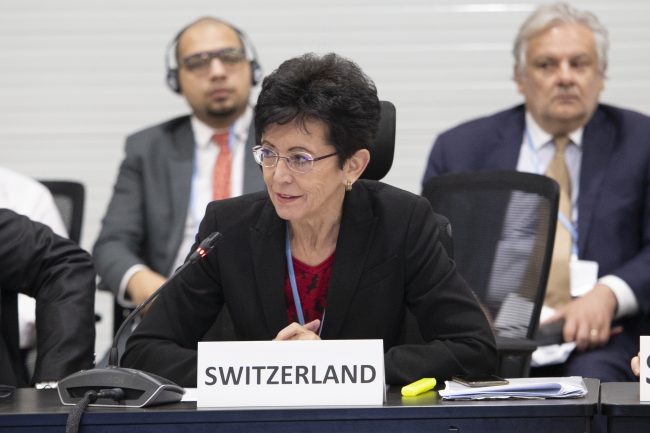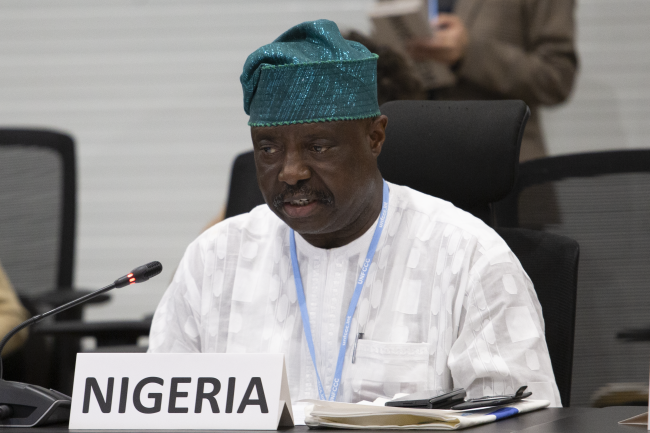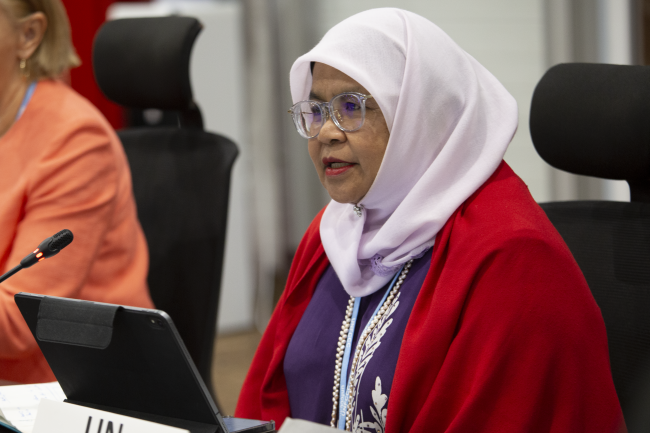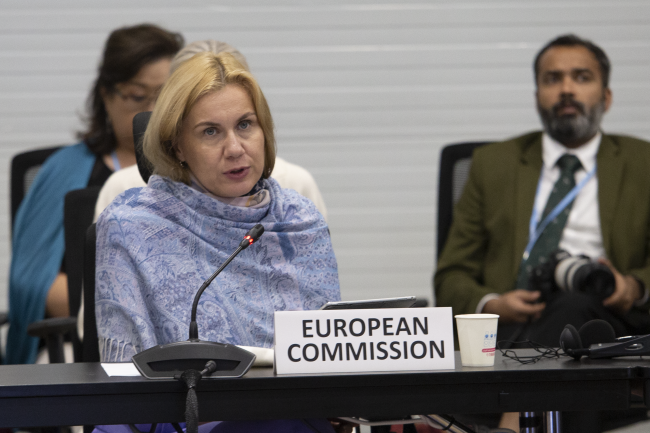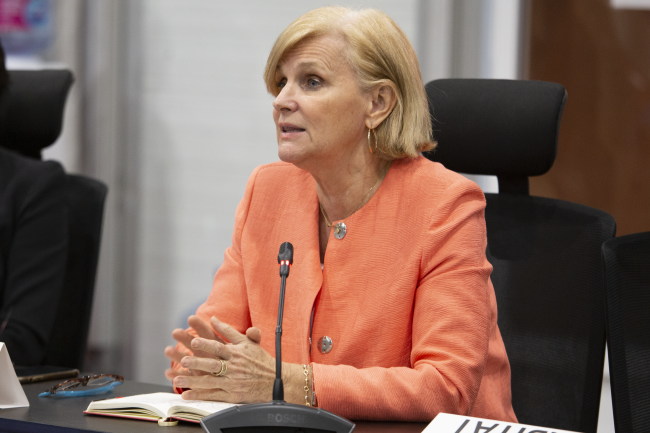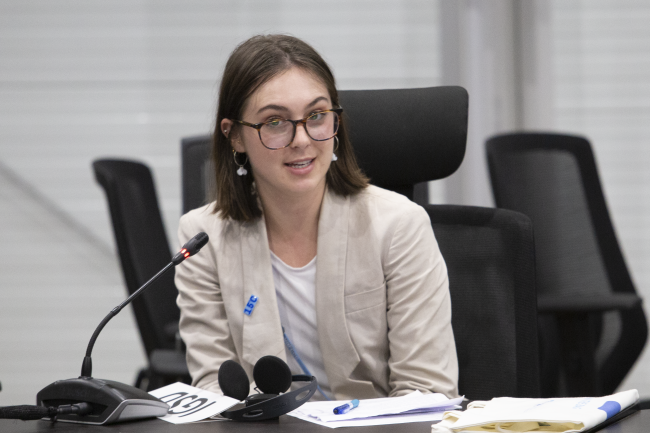About
On the sidelines of COP 27, the Climate and Clean Air Coalition to Reduce Short-lived Climate Pollutants (CCAC) saw ministers and leaders renew and in some cases ramp up their commitments during the Climate and Clean Air Ministerial Roundtable
In a year in which the impacts of climate change have become increasingly apparent and when the UN General Assembly (UNGA) has recognized the right to a clean, healthy, and sustainable environment, momentum is building to draw links between clean air and the climate crisis. The Climate and Clean Air Coalition to Reduce Short-lived Climate Pollutants (CCAC) saw ministers and leaders renew and in some cases ramp up their commitments during the Climate and Clean Air Ministerial Roundtable, which took place on the sidelines of COP 27 and serves as the CCAC’s preeminent political body to advance the Coalition’s work.
Roundtable participants took stock of progress since COP 26, noting that 2022 has seen a strong start with respect to implementation of the CCAC 2030 Strategy; reaffirmed their commitment to quickly reduce emissions of methane and other short-lived climate pollutants (SLCPs), including by building on the Global Methane Pledge launched in 2021 and in which over half of the top 20 methane emitters are now part of; announced pledges to the CCAC Trust Fund; and launched new reports, including the UNEP-CCAC Global Methane Assessment: 2030 Baseline Report.
Opening
John Kerry, Special Presidential Envoy for Climate, United States, emphasized that achieving the Global Methane Pledge is key to meeting the goals of the Paris Agreement. He highlighted strengthened US regulations aimed at addressing methane and underscored that the US will invest USD 20 billion to control and reduce methane emissions.
Kwaku Afriyie, Ministerial Roundtable Co-Chair and Minister of the Environment, Science, Technology, and Innovation, Ghana, said reducing SLCPs is one of the surest ways to avoid crossing the tipping points of 1.5°C. He called for further commitments from leaders, underlining that “when united, in the face of adversity, our vulnerability becomes our greatest strength.” Csaba Kőrösi, UNGA President, pointed to the UNGA’s recent recognition of the right to a clean, healthy, and sustainable environment, and said leveraging the integrated benefits of SLCPs towards this right can be done through, among others, ensuring SLCPs are included in National Adaptation Plans and Nationally Determined Contributions (NDCs).
Inger Andersen, Executive Director, UN Environment Programme (UNEP), said USD 150 million is needed by 2025 to deliver on the CCAC 2030 Strategy, and called on all finance actors to work with the CCAC to connect policies with finance frameworks. Bertrand Piccard, Chairman, Solar Impulse Foundation, highlighted the need to focus on the economic profitability and efficiency of using methane as an energy resource.
Pledges to the CCAC Trust Fund
The US announced plans to contribute another USD 3 million to the CCAC Trust Fund. Finland affirmed that the government will continue its pledge of financial support to the Coalition. The Walloon Government of Belgium pledged EUR 100,000 in the next year. Norway announced it will increase funding by NOK 1.5 million this year and to a total of NOK 8 million in 2023. Japan announced a USD 1,250,000 contribution in the next year; Monaco will contribute EUR 500,000; and Switzerland pledged USD 8 million through 2025. The Sequoia Climate Foundation, on behalf of the Global Methane Hub, announced: a USD 500 million commitment to support a “just and equitable transition” to clean energy in developing countries; and USD 180 million for methane emissions through the Global Methane Hub, including 10 million USD which had been pledged to the CCAC Trust Fund.
Launches
Sweden announced the launch of the CCAC’s new Gender Strategy, which seeks to strengthen gender equality in the CCAC’s work, and noted the country has developed its first methane action plan. Canada highlighted: it will soon announce bilateral funding to support small island developing states in their efforts to reduce methane emissions; it is on track to reduce methane emissions from oil and gas companies by 75% by 2030; and a pledge of CAD 2 million for methane mitigation in developing countries guided by the Global Methane Initiative. The European Commission highlighted the launch of Global Methane Assessment: 2030 Baseline Report, which shows the amount of methane in the atmosphere has increased significantly.
Action Announcements
On the Global Methane Pledge, the United Kingdom announced that its oil and gas industry has committed to reduce its methane emissions by half this decade. Mongolia and Mali announced they had recently joined the Global Methane Pledge.Gabon said it has finished collecting data on emissions from its oil installations and has moved to a six-month data analysis phase. Panama pointed to its forthcoming SLCP and methane roadmap, noting its plan to ramp it up by COP28. Costa Rica said converting methane to biofuels has become central to the country’s climate strategies.
The World Meteorological Organization discussed its work on developing an internationally coordinated system using satellite systems for finding and measuring methane sources in each country. The World Bank emphasized the need to ramp up 2021’s funding of USD 31.7 billion to cover a range of interventions. Viet Nam outlined its policies and national strategies to review methane emissions and implement a national action plan to achieve a 30% reduction of methane emissions by 2030. Colombia urged multilateral finance initiatives, as the global economic crisis is making it difficult to achieve methane goals. The Institute for Governance and Sustainable Development called for “emergency mode” action to achieve methane mitigation quickly, which requires increased funding.
On agriculture, Chile said the country has worked with multiple stakeholders to promote greater accountability from all, including the agricultural industry. New Zealand said it plans to extend domestic emissions trading schemes to the agriculture sector by 2025. Ireland emphasized the need to consider climate justice when addressing the complex issues of food production. The World Resources Institute highlighted the role of agriculture in tackling methane emissions and the importance of working on food systems transition worldwide. The Food and Agriculture Organization of the UN (FAO) expressed support for a 30% reduction in methane emissions by 2030 and pointed to tools and data that can be shared at multiple levels to achieve these reductions.
On heavy-duty vehicles and engines, Jordan highlighted the country’s shift to electric and hybrid vehicles. Switzerland underscored work in the transport sector in developing countries. Clean Air Asia highlighted new initiatives to reduce shipping and heavy-duty vehicle emissions, including a programme assessing the clean air performance of ship operators in the waters between China and other countries.
On fossil fuels, Nigeria said SLCPs are now included in its NDC. The Environmental Defense Fund said capturing methane promotes climate progress, energy security, and economic development. The Clean Air Task Force highlighted progress made, noting the first Latin American regulations targeting methane in the oil and gas sector in Colombia. Bangladesh outlined its initiatives to improve air quality in the country and reduce SLCPs, including reducing methane emissions by 37% by 2040.
On waste, the Netherlands shared its goal to transform the country into a circular economy and its commitment to continue its financial support for the CCAC in 2023. Peru discussed the change in its legal frameworks and regulations to develop solid waste as an energy resource. UN-Habitat emphasized that cities “need to be at the core of delivering climate action” and urged an integrated strategy for reducing emissions. The International Solid Waste Association urged development of economic instruments for adaptation and mitigation. C40 Cities emphasized “significant progress” on meeting commitments on emissions reductions from waste and urged more national and international collaborations.
On cooling, Japan and the Dominican Republic presented new roadmaps towards sustainable refrigeration. The Global Food Cold Chain Council congratulated the CCAC for its successful advocacy in pushing for the Kigali Amendment to the Montreal Protocol.
On household energy, Togo pointed to consolidated efforts to substitute household energy with gas and other alternative renewable sources of energy as part of its national plan to reduce emissions from agriculture, forestry, and the energy sectors.
Building Clean Air Momentum
Oxfam International encouraged leaders to take radical action as a collective, which includes taxing the production of oil and gas, creating subsidies for renewable energy, and offering grants and debt-free financing for the energy transition of developing countries. Monaco highlighted the country’s transition to clean vehicles. Mexico’s Instituto Nacional de Ecología y Cambio Climático highlighted its first national strategy to reduce SLCPs and the inclusion of a 51 percent reduction target by 2030 for black carbon in its NDCs. The Clean Air Fund called for governments to “properly” fund air quality, noting less than one percent of development aid goes to these issues. The Asian Development Bank described the Asia Clean Blue Skies Program, which seeks to build the capacity of countries on the design and implementation of investment projects with air quality and low carbon benefits. Moldova noted that, as an EU candidate country, it has begun implementing the objectives of the European Green Deal.
The World Health Organization encouraged CCAC members to increase their level of ambition in order to accelerate the transition to clean air. The Center for Clean Air Policy discussed its work with the Waste Hub in supporting efforts to sustain a circular economy approach and encouraged CCAC members to reduce their organic waste by 30%. The Institute for Advanced Sustainability Studies emphasized the need for science-based awareness raising on the dangers of methane. Senegal proposed creating a CCAC working group on identifying the best technologies to reduce methane. Micronesia highlighted its national methane plan and target for deep emissions reductions by 2040.
Closing
In closing remarks, Amelia Murphy, Ministerial Roundtable Co-Chair, Fast Action on Climate to Ensure Intergenerational Justice initiative, said “We need heads of state to ensure a safe planet for future generations by actually reducing temperatures in this decade… We know this would be more effective if young people had a seat at the table." UNEP Executive Director Inger Andersen closed the Roundtable by highlighting a promising start to implementation of the CCAC 2030 Strategy, and thanked members for their leadership and financial commitments, including USD 6 million in new commitments. Andersen promised that “we will work with everyone so we can push this ahead.”
Organizer: Climate and Clean Air Coalition (CCAC)
Contact: Emily Kaldjian | emily.kaldjian@un.org
For more information: https://www.ccacoalition.org/
To receive free coverage of global environmental events delivered to your inbox, subscribe to the ENB Update newsletter.
